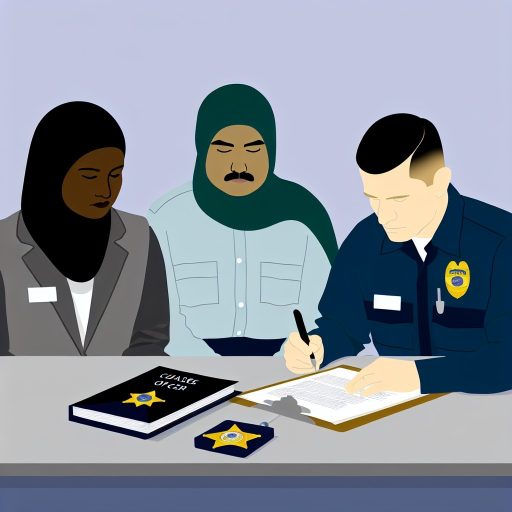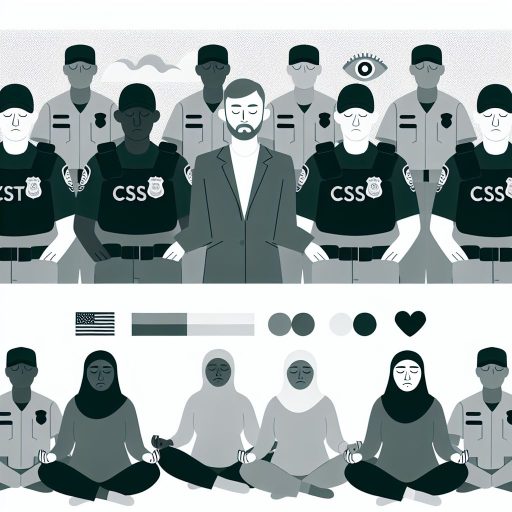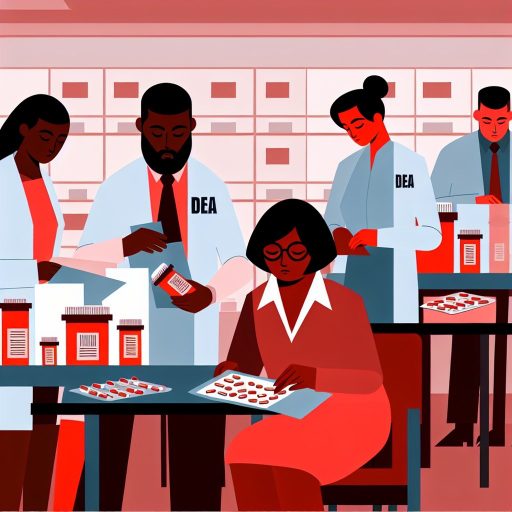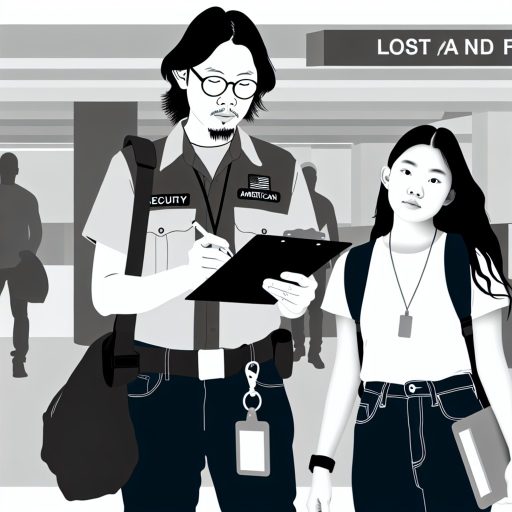Introduction
In the realm of law enforcement, correctional officer training programs play a pivotal role.
These programs ensure the safety and security of correctional facilities.
They are designed to equip officers with the necessary skills and knowledge.
The goal is to help officers manage inmates effectively and maintain order.
Importance of Correctional Officer Training Programs
Correctional officer training programs prepare officers for unique challenges they face in correctional environments.
These programs include crisis intervention, self-defense tactics, and de-escalation techniques.
Such training helps officers handle complex situations effectively and calmly.
Role of Correctional Officers in the Criminal Justice System
Correctional officers ensure the safe and secure confinement of inmates.
They maintain order, enforce regulations, and provide a structured environment for rehabilitation.
Additionally, officers act as a critical link between inmates and the outside world.
They often provide support, guidance, and supervision to help inmates reintegrate into society.
Correctional officer training programs prepare individuals for their responsibilities.
These programs cover security procedures, inmate management, and crisis intervention.
Overview of correctional officer training requirements
Correctional officer training programs teach skills relevant to correctional facilities.
The programs include topics like security procedures and managing inmates.
Additionally, they focus on crisis intervention techniques.
Minimum educational requirements
- Most correctional officer training programs require a high school diploma or GED.
- Some programs require a college degree or criminal justice coursework.
- A solid educational foundation is essential for success.
Physical fitness standards
- Physical fitness is crucial for correctional officers due to physical demands.
- Training includes fitness assessments and physical training.
- Fitness standards vary by agency and facility.
Background check and psychological evaluation
- Candidates undergo a thorough background check before training.
- The check covers criminal history, credit, and references.
- Psychological evaluations assess job suitability.
Correctional officer training programs demand rigor to prepare individuals effectively.
When it comes to Correctional Officer Training Programs, several types of programs help individuals prepare for this role.
This role is both challenging and important.
Types of Training Programs Available
- Basic Training Academy Programs: These programs are often the starting point for individuals looking to become correctional officers.
- On-the-Job Training Programs: Some correctional facilities offer on-the-job training programs.
- Specialized Training Programs for Specific Prison Populations: Some programs focus on preparing officers to work with juveniles, women, or individuals with mental health issues.
Each type of training program plays a crucial role in helping individuals develop necessary skills and knowledge.
Transform Your Career Today
Unlock a personalized career strategy that drives real results. Get tailored advice and a roadmap designed just for you.
Start NowTrainees gain valuable insights through basic academy, on-the-job, or specialized programs.
Basic Training Academy Programs provide a comprehensive foundation for entering corrections.
These programs typically cover facility policies, inmate supervision techniques, crisis intervention strategies, and legal aspects.
By completing a Basic Training Academy Program, individuals gain a solid understanding of correctional principles and practices.
This knowledge ensures safety and security for both staff and inmates within a facility.
On-the-Job Training Programs offer trainees opportunities to apply skills in real-world settings.
Trainees work alongside experienced officers to learn how to respond effectively to various situations.
This hands-on experience helps trainees develop practical skills and confidence.
Through on-the-job training, individuals learn to navigate interpersonal dynamics and manage conflicts.
They also maintain control and order within a correctional facility.
Specialized Training Programs cater to unique needs of specific prison populations.
Programs for juvenile offenders may focus on adolescent development, trauma-informed care, and restorative justice practices.
Training for female inmates addresses gender-specific issues like maternal health care, reproductive rights, and trauma recovery.
By tailoring training to these needs, officers provide more effective and compassionate care.
Essential Skills and Knowledge for Correctional Officers
Correctional Officer Training Programs offer various options to prepare for careers in corrections.
Trainees gain the skills and knowledge required to succeed in this demanding profession.
You Might Also Like: What to Do if You Suspect You’re Being Investigated
Curriculum of correctional officer training programs
Correctional officer training programs include courses that focus on the legal aspects of law enforcement.
The courses cover patrol procedures, criminal law, and evidence collection.
Correctional officers need to be prepared to handle confrontations with inmates safely and effectively.
Transform Your Career Today
Unlock a personalized career strategy that drives real results. Get tailored advice and a roadmap designed just for you.
Start NowTraining in defensive tactics and the appropriate use of force is essential.
This training ensures the safety of both officers and inmates.
Correctional officers often find themselves in high-stress situations.
They must quickly de-escalate conflicts and prevent violence.
Training in crisis intervention and de-escalation techniques equips officers with these skills.
These skills help officers handle volatile situations calmly and effectively.
- Courses in law enforcement procedures focus on legal aspects such as patrol, criminal law, and evidence collection.
- Defensive tactics and use of force training prepare officers for safe confrontation management.
- Crisis intervention and de-escalation techniques teach officers to reduce conflicts and avoid violence.
Correctional officer training programs may also include courses on ethics and professionalism.
Report writing is another important course offered.
Mental health awareness is included to help officers understand inmate needs.
These courses develop skills and knowledge essential to excel in their roles.
This training helps maintain a safe and secure environment within correctional facilities.
Correctional officer training programs provide comprehensive education and training.
They enable officers to perform duties effectively and safely.
The programs cover a range of topics from law enforcement procedures to crisis intervention techniques.
These programs ensure officers are well-prepared to handle job challenges.
Discover More: Key Responsibilities of a Counterterrorism Specialist
Practical Skills Training
Correctional officer training programs often include practical skills training to prepare recruits for the job.
This training allows recruits to learn and practice necessary skills in a controlled environment.
Practical skills training typically involves hands-on experience in a simulated correctional facility.
Recruits may participate in scenarios that mimic real-life situations they could encounter on the job.
Transform Your Career Today
Unlock a personalized career strategy that drives real results. Get tailored advice and a roadmap designed just for you.
Start NowHands-On Experience in a Simulated Correctional Facility
One key component of correctional officer training programs is hands-on experience in a simulated correctional facility.
Recruits have the opportunity to familiarize themselves with the environment and routines of a correctional facility.
This experience helps them understand the day-to-day responsibilities and challenges they will face as correctional officers.
Hands-on training allows recruits to practice their skills and knowledge in a realistic setting under supervision.
Firearms Training and Certification
Correctional officer training programs often include firearms training to ensure recruits handle weapons safely.
Recruits learn how to properly handle, care for, and use firearms in a variety of scenarios.
Upon successful completion of firearms training, recruits may receive certification to carry a weapon while on duty.
Firearms training is essential for correctional officers to maintain a safe and secure environment within the facility.
Role-Playing Exercises to Simulate Real-Life Scenarios
Role-playing exercises are an integral part of correctional officer training programs to simulate real-life scenarios.
Recruits participate in scenarios that require them to make decisions and respond to challenging situations.
These exercises help recruits develop critical thinking skills and the ability to make quick judgments.
By practicing in a controlled environment, recruits can better prepare for the unpredictable nature of working in a correctional facility.
Gain More Insights: DEA Agent Code of Conduct and Ethics

Correctional officer training programs play a crucial role in preparing individuals for challenging and demanding work.
This profession requires strong skills and dedication.
However, ongoing professional development is equally important for correctional officers.
It helps them stay current on best practices in the field.
Importance of ongoing professional development
Correctional officers maintain safety and security within correctional facilities.
They often deal with volatile situations and individuals.
Ongoing professional development helps officers stay updated on the latest techniques.
Transform Your Career Today
Unlock a personalized career strategy that drives real results. Get tailored advice and a roadmap designed just for you.
Start NowIt also helps them learn strategies for effectively managing these situations.
Continuing education requirements for correctional officers
Many jurisdictions set continuing education requirements for correctional officers.
These requirements ensure officers continually enhance their skills and knowledge.
Requirements may include attending training sessions, workshops, or obtaining certifications.
Opportunities for advanced training and certifications
Correctional officers can access various advanced training programs and certifications.
These programs help them specialize in specific areas of correctional work.
For example, officers may pursue certifications in crisis intervention.
They may also train in mental health or K9 handling.
Advantages of staying current on best practices
Staying current in the field benefits correctional officers in many ways.
This practice enhances their effectiveness in managing difficult situations.
It improves decision-making abilities as well.
Ultimately, it contributes to a safer and more secure correctional environment.
Ongoing professional development is essential for officers to grow and evolve in their roles.
By staying current on best practices and obtaining advanced training, officers can better serve their communities.
They also carry out their duties more effectively.
Explore Further: School Resource Officers: Myths vs. Facts
Challenges and Rewards of Working as a Correctional Officer
Correctional officers play a crucial role in maintaining safety and security within correctional facilities.
The job comes with unique challenges and rewards that make it a demanding yet fulfilling career.
High-Stress Environment and Potential Dangers
- Correctional officers work in a high-stress environment where they must constantly be aware of potential dangers.
- Dealing with violent offenders and managing unpredictable situations can take a toll on their mental and physical well-being.
- Officers must be vigilant at all times to ensure the safety of themselves, their colleagues, and inmates.
- They face the risk of physical harm, including assaults, injuries, and exposure to infectious diseases.
Meaningful Role in Promoting Public Safety and Rehabilitation
- Despite the challenges, correctional officers find fulfillment in their role in promoting public safety and rehabilitation.
- They play a vital part in maintaining order within the facility and preventing disturbances or riots.
- By enforcing rules and regulations, officers contribute to the overall goal of corrections, which is to rehabilitate offenders.
- Building positive relationships with inmates and helping them make positive changes can be rewarding.
Opportunities for Career Advancement and Specialization
- Working as a correctional officer opens up opportunities for career advancement and specialization.
- Officers can pursue promotions to higher ranks, such as sergeant, lieutenant, or captain.
- Specialized units, such as K-9 units, tactical response teams, or investigative units, offer career diversity.
- Advanced training programs and certifications can further enhance an officer’s skills and qualifications.
Working as a correctional officer requires resilience, dedication, and a commitment to public safety.
While the job presents unique challenges and potential dangers, the rewards of making a positive impact on individuals and the community can be immensely gratifying.
Transform Your Career Today
Unlock a personalized career strategy that drives real results. Get tailored advice and a roadmap designed just for you.
Start NowThe opportunities for career advancement and specialization provide avenues for personal growth and professional development in corrections.
Correctional Officer Training Programs
Correctional officer training programs play a crucial role in preparing individuals for the challenges of working in correctional facilities.
These programs cover a wide range of topics.
They include crisis intervention, communication skills, conflict resolution, and legal procedures.
Hands-on training is often incorporated into these programs.
It simulates real-life scenarios that officers may encounter on the job.
Physical training is also an essential component of correctional officer programs.
It ensures officers are fit for the demands of the job.
Upon completion of training, individuals are equipped with the necessary skills and knowledge.
They can effectively manage inmates and maintain safety and security within correctional facilities.
Importance of Training for Correctional Officers
Correctional officer training programs are vital for the success of officers in their roles within the justice system.
Individuals interested in pursuing a career in corrections benefit greatly from these programs.
The training provides the foundation needed to excel in the field.
Well-trained correctional officers significantly impact maintaining order and safety within correctional facilities.
They ultimately contribute to a fair and just judicial system.
Additional Resources
Careers | U.S. Marshals Service
[E-Books for Sale]
The Big Book of 500 High-Paying Jobs in America: Unlock Your Earning Potential
$19.99 • 500 High-Paying Jobs • 330 pages
Explore 500 high-paying jobs in America and learn how to boost your career, earn more, and achieve success!
See All 500 High-Paying Jobs of this E-Book
1001 Professions Without a Degree: High-Paying American Jobs You Can Start Now
$19.99 • 1001 Professions Without a Degree • 174 pages
Discover 1001 high-paying jobs without a degree! Unlock career tips, skills, and success strategies for just $19.99!




